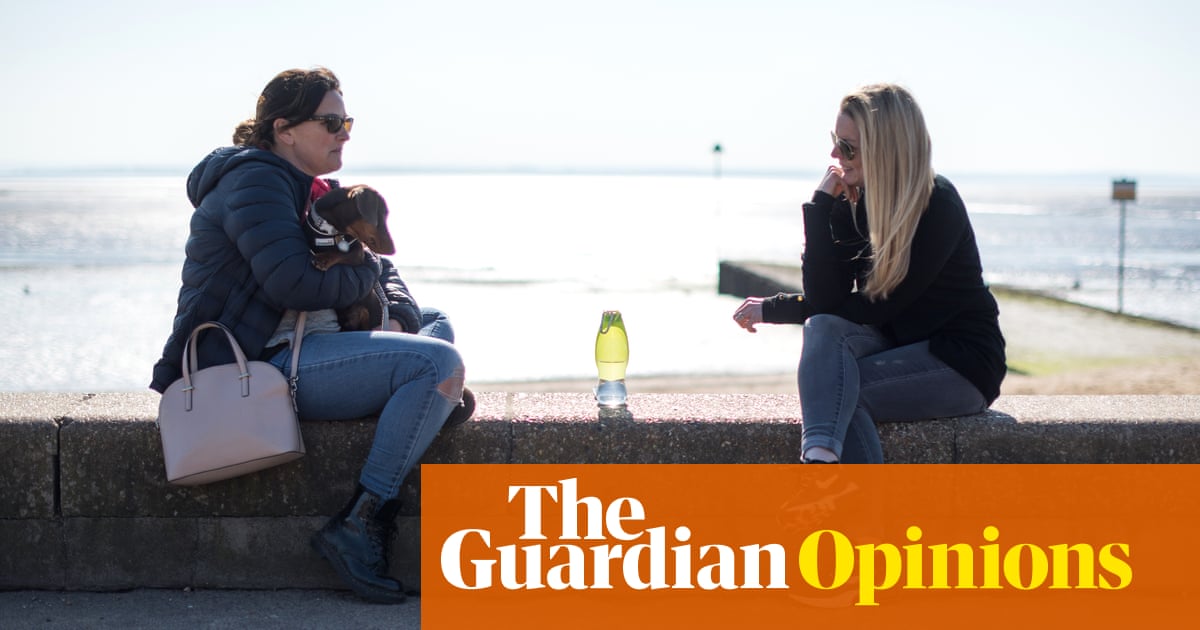Are friendships really being destroyed by Britain’s divided politics? | Gaby Hinsliff - 5 minutes read

We are at odds over lockdown, over Brexit, and I daren’t even ask about more incendiary matters. But I like her, all the same. We have known each other for almost 30 years, had children at the same exhausted time, and soldiered through similar professional trenches with hideous bosses and groping colleagues and all the obstacles that litter women’s careers, propping each other up along the way. We were always chalk and cheese, but she’s funny and clever and I still constantly remind myself of one characteristically blunt but useful piece of advice she gave me. Yet striving to remain friends can sometimes feel like yearning for something that isn’t going to come back.
Are friendships like this dying? This week Frank Luntz, the US pollster (and old university friend of Boris Johnson) newly installed at the Centre for Policy Studies thinktank, grabbed headlines with an argument that Britons are “writing each other off and out of our lives” as relationships crack under the strain of ideological divides. His research found half of under-30s and a third of over-30s have stopped talking to someone for voicing a political opinion, prompting some hand-wringing about cancel culture and whether younger people are now too censorious to tolerate differences of opinion. (The over-50s were significantly less likely to have had such a falling out, although maybe they just did their social culling decades ago and now move in smaller but more like-minded circles).
But while a recent Ipsos Mori study did find evidence that progressives were less tolerant than rightwingers of political differences within their friendships – people who support Black Lives Matter or trans rights were less likely to say they could be friends with someone who didn’t than vice versa, and remainers less likely than leavers – the doom feels strangely overdone, and in danger of normalising something that still isn’t actually the norm.
Respondents weren’t asked about friendships specifically, but whether they’d ever stopped talking to someone in real life or online. Does muting some aggressive stranger on Twitter count? Because that’s not cancelling, it’s self-preservation, like escaping a belligerent drunk at a party. What about avoiding your once beloved uncle on Facebook, because he’s become a diehard anti-vaxxer and nobody can face another argument about Bill Gates, yet still considering him your beloved uncle because … well, he is? Sometimes keeping a distance can be a form of tolerance, a way of stretching the elastic rather than snapping it: put off a final rupture for long enough and maybe they’ll return to their senses first. But above all, the figures feel meaningless without knowing how many people have stopped talking to someone for reasons that had nothing to do with politics.
Something said in the heat of the moment that can’t be taken back; a new partner nobody else can stand; a flatshare that went sour or, worst of all, a mysterious, unexplained ghosting. And then there are the painful endings caused by lives going in different directions. You had children while they burned through cycle after cycle of failed IVF, or perhaps their career went stratospheric while yours stalled. But Luntz’s research also stopped short of surely the most interesting question, which is how many of those who have stopped talking to someone now regret it, or want to patch things up but don’t know how. Sometimes this kind of lost friendship can feel like a bereavement, more painful than any relationship breakup. Romance may come and go, but friends are meant to last for ever, which makes it all the more distressing when suddenly they become estranged.
This has been a testing year for friendships. Tensions that could once have been defused over a couple of beers festered through the physical separation of lockdown; paranoia crept all too easily into the reading of hastily dashed-off WhatsApps, while social media skirmishes have loomed larger among those sitting around with nothing else to do. Covid itself has driven new wedges between cautious rule-takers and friends more willing to take chances, now that all social invites must be weighed not just against the cap on numbers but against everyone’s varying appetites for risk, and what some might quite literally be bringing to the party as a result. But being starved of company has perhaps also forced many people to think harder about exactly what and whom they miss.
Old friendships are the thread connecting us with a younger self or a past that isn’t wholly lost so long as someone else remembers it, which is why severing them can feel like losing a limb. And that’s why I have not given up on my friend. I just keep biding my time, hoping vaguely that something will change, that one day the friendship can be properly resuscitated, as if it had been a critically ill patient put into a coma for its own good. Perhaps the pessimists are right, and we really are becoming a nation divided, ideological differences pushing us ever further apart. But my hunch is that we’re at least as often a nation trying and failing and trying again to bridge the gap, both sides constantly resolving to make the phone call, hanging back only because nobody knows quite where to start.
Source: The Guardian
Powered by NewsAPI.org